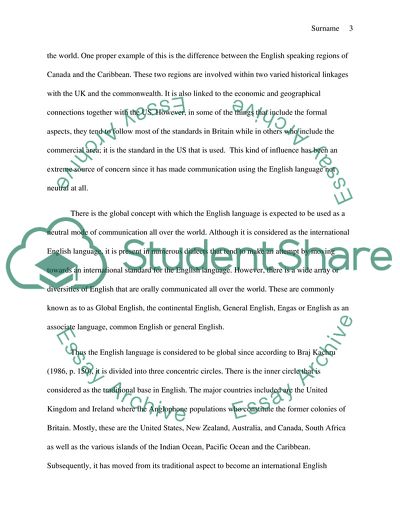Cite this document
(A Variety of English Can Never Be a Truly Neutral Means of Coursework Example | Topics and Well Written Essays - 3000 words, n.d.)
A Variety of English Can Never Be a Truly Neutral Means of Coursework Example | Topics and Well Written Essays - 3000 words. https://studentshare.org/humanitarian/1822496-can-a-variety-of-english-ever-be-a-truly-neutral-means-of-communication
A Variety of English Can Never Be a Truly Neutral Means of Coursework Example | Topics and Well Written Essays - 3000 words. https://studentshare.org/humanitarian/1822496-can-a-variety-of-english-ever-be-a-truly-neutral-means-of-communication
(A Variety of English Can Never Be a Truly Neutral Means of Coursework Example | Topics and Well Written Essays - 3000 Words)
A Variety of English Can Never Be a Truly Neutral Means of Coursework Example | Topics and Well Written Essays - 3000 Words. https://studentshare.org/humanitarian/1822496-can-a-variety-of-english-ever-be-a-truly-neutral-means-of-communication.
A Variety of English Can Never Be a Truly Neutral Means of Coursework Example | Topics and Well Written Essays - 3000 Words. https://studentshare.org/humanitarian/1822496-can-a-variety-of-english-ever-be-a-truly-neutral-means-of-communication.
“A Variety of English Can Never Be a Truly Neutral Means of Coursework Example | Topics and Well Written Essays - 3000 Words”. https://studentshare.org/humanitarian/1822496-can-a-variety-of-english-ever-be-a-truly-neutral-means-of-communication.


